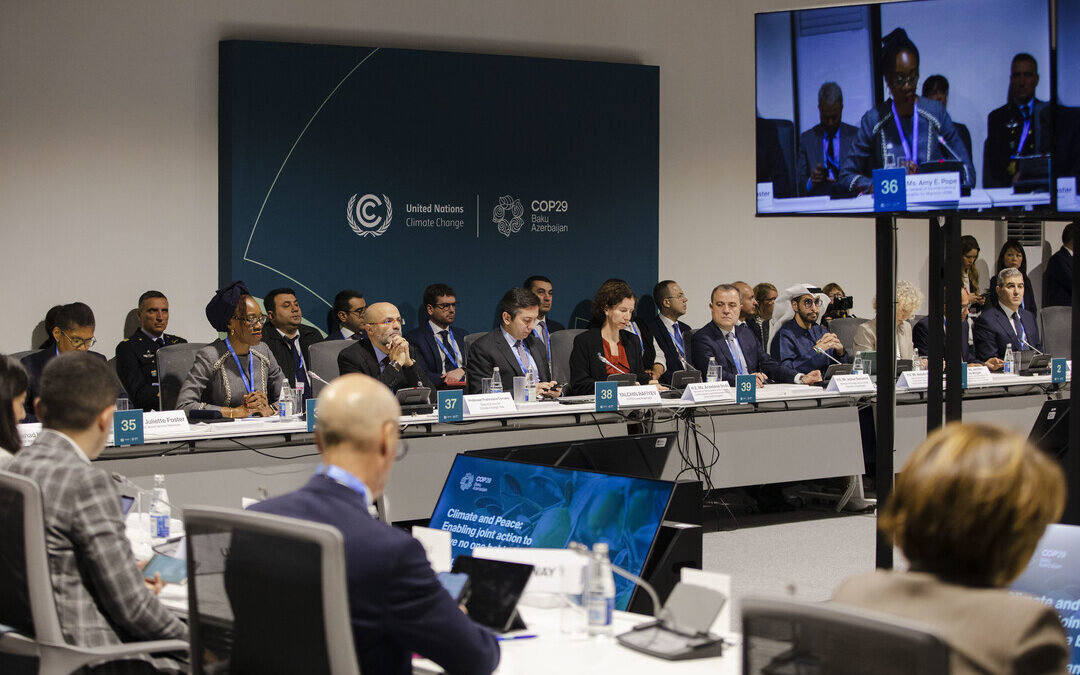India Calls on Wealthy Nations to Lead Just Transition at COP29
India demands equity and justice in global climate action, urging developed nations to lead just transitions at COP29.
In a pointed intervention during the Second Annual High-Level Ministerial Round Table on Just Transition at COP29, India underscored the importance of fairness and equity in global climate action, emphasizing that transitions must prioritize the development needs of the Global South.
Led by Leena Nandan, secretary of the Ministry of Environment, Forest and Climate Change, India firmly asserted that the principles of equity and common but differentiated responsibilities and respective capabilities or CBDR-RC must remain central to all climate discussions under the Paris Agreement.
A Broader Vision for Just Transitions
Addressing the assembly, Nandan criticized what she described as a “narrow framing” of the just transition discussion, urging a more inclusive approach that accounts for stark global inequalities.
“Development is the overriding priority for countries of the Global South,” she stated, highlighting that India’s per capita energy consumption remains just one-third of the global average, far below the levels of developed nations.
India’s intervention stressed that just transitions must recognize developed and developing countries’ vastly different starting points.
The statement argued that focusing solely on transition pathways within the context of Nationally Determined Contributions and National Adaptation Plans was premature.
“Just transition has to begin with transitions in developed countries,” the Indian delegation asserted, calling on wealthier nations to lead the charge toward net-zero emissions by the end of this decade.
Core Issues Raised by India
India highlighted several systemic challenges undermining equitable climate action, calling for open discussions on unilateral trade measures restricting equitable development opportunities for the Global South.
She spoke about the intellectual property rights of green technologies that hinder free and scalable access to developing nations.
The Indian side insisted on discussing the carbon debt and the compensation developed countries owe for their historical overuse of the global carbon budget.
Nandan also highlighted the perpetuated inequity of how current climate discourse favors the lifestyles and choices of developed nations while imposing costs on the vulnerable populations of developing countries.
The delegation also reiterated the need to promote sustainable lifestyles, referencing commitments made at the United Nations Environment Assembly earlier this year.
A Call for Trust and Cooperation
India stressed that achieving a genuinely equitable global transition requires frank discussions and tangible actions from developed countries to lower the costs borne by the Global South.
“Transitions in developing countries should not be seen as investment opportunities,” the statement read, warning that such an approach undermines the justice element of the transition process.
The intervention concluded with a call for COP29 to recognize CBDR-RC and climate justice as foundational principles in shaping just transition pathways, rejecting top-down approaches disregarding national circumstances.
Shaping the Future of Climate Justice
As climate negotiations at COP29 progress, India’s bold stance on equity and justice reinforces the growing demand from developing nations for greater accountability and leadership from wealthier countries. By focusing on historical responsibility and fair distribution of resources, India has positioned itself as a leading voice for the Global South in the fight for climate justice.
Also Read:
India Criticizes Developed Nations’ Climate Finance Stance at COP29

